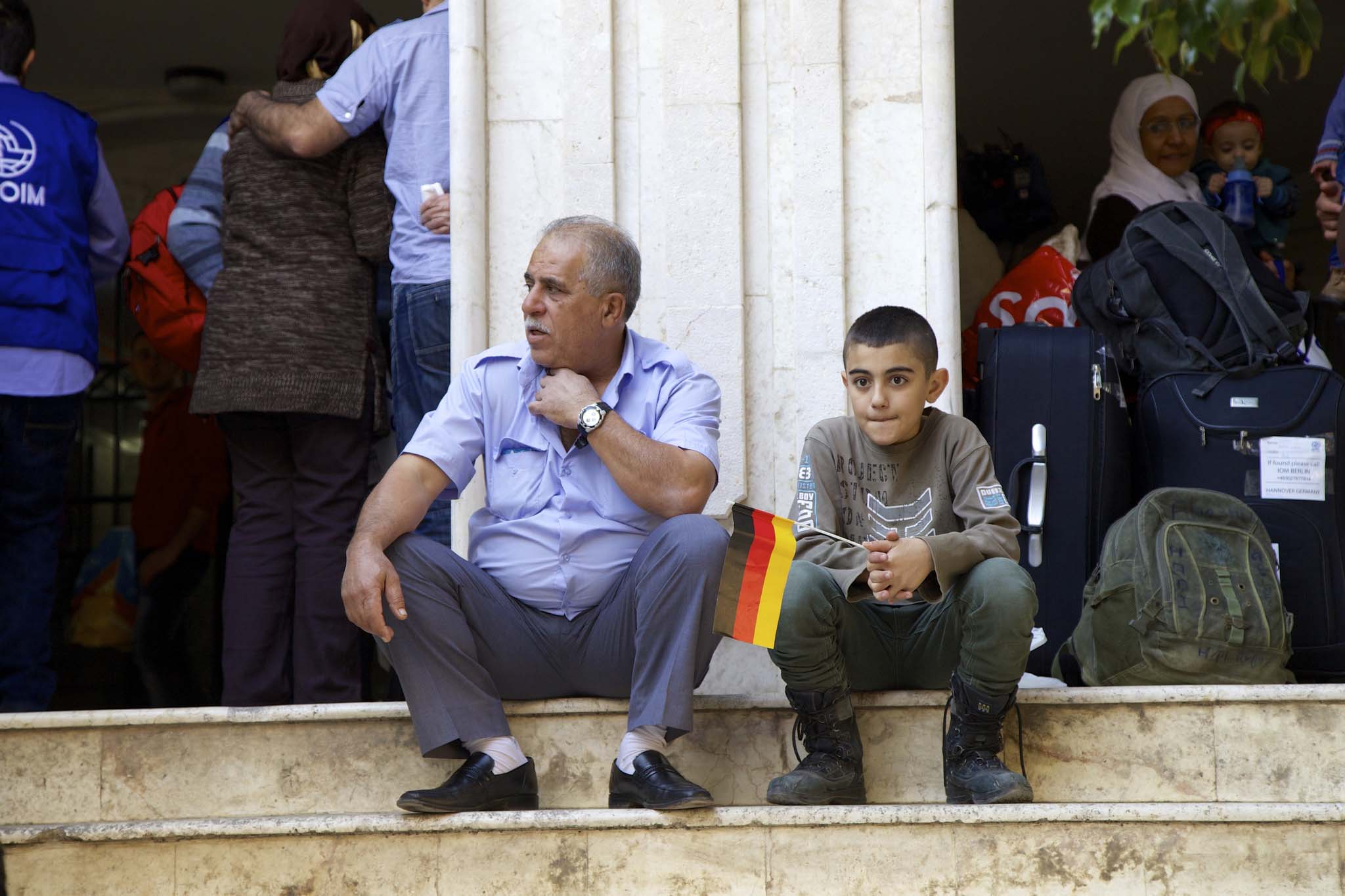
As the plight of Syrian refugees grows increasingly dire, more people have been calling on wealthy Gulf countries to accept their share of responsibility and welcome refugees on their soil.
This week has been an especially tragic one for those trying to flee the violence in Syria. According to media reports, some 71 immigrants died after being locked in a truck that was abandoned on a highway in Austria.
Another 12 people believed to be Syrian refugees drowned after two boats leaving southwest Turkey for the Greek island of Kos sank.
The deceased included a toddler whose body was photographed washed up ashore, an image that horrified people from around the world.
Crisis mode
Syria’s years-long civil war has displaced more than 6 million people within its borders and spurred more than 4 million to escape to other countries, according to the United Nations.
While in previous years most Syrians fled to neighboring countries, they are now increasingly seeking refuge in Europe.

Last month, a record number of 107,500 people crossed the EU’s border, according to the Guardian.
But response to the influx has been mixed, with European countries disagreeing on how to manage the crisis.
Germany for example has said it would accept 1 million asylum seekers this year, but Hungary has responded to the issue by building a new fence along its border with Serbia.
Citing GCC nations’ geographic proximity and similar cultural and Islamic values, many people have taken to social media to urge governments in the Gulf to welcome Syrian refugees.
This week, the hashtag #استضافة_لاجئي_سوريا_واجب_خليجي (welcome Syria’s refugees is a Gulf duty) was trending on Twitter.
Among those who contributed to the conversation were a few prominent Qatari and Arab figures, including local radio and TV presenter Aqeel Al Janahi, who said:
https://twitter.com/aqeeljanahi/status/637727619002183680
Translation: “We shouldn’t call the Syrians who ran from oppression and death in their country refugees, they are immigrants and we have to host them and help them.”
Meanwhile, an editorial published in the Gulf Times on Thursday condemned the “silence” of the Gulf states, in comparison to the efforts exerted by Europe in dealing with the Syrian refugees. The editorial read:
“Tragically, the cash-rich Gulf countries have not yet issued a collective statement on the crisis – much less come up with a strategy to help the migrants who are overwhelmingly Muslim. Turkey has taken in more than 2.5mn Syrian refugees, while not-so-well-off Lebanon is also hosting hundreds of thousands. In this part of the world, however, the silence is deafening.”

Also this week, prominent Emirati blogger and commentator on Arab affairs Sultan Al Qassemi wrote an editorial saying:
“The Gulf must realize that now is the time to change their policy regarding accepting refugees from the Syria crisis. It is the moral, ethical and responsible step to take.”
Speaking to Doha News, Al Qassemi said:
“Qatar was heavily invested in the early days of the Syrian uprising trying to no avail to convince the government of Bashar Al Assad to enact reforms. Qatar can now set an example by offering desperate Syrian refugees shelter.”
He added:
“Numerous articles in Qatari press complain about the decrease of use of Arabic language and that Qatari culture isn’t respected by foreigners. In addition to being the ethical move Syrians are close in cultural and in language to their Qatari brethren.”
Hesitation
Why GCC nations have not opened their doors to Syrians in need remains a point of debate.
Online, some said there were better ways to help:
https://twitter.com/q6r/status/637374986416599040
Translation: “On the contrary, giving them weapons and supporting them in retrieving their country and electing a (new) ruler is our main duty.”
Echoing this sentiment, a UAE government official told Bloomberg yesterday that allowing Syrian refugees to settle in the GCC wasn’t in the long-term interest of those fleeing the war.
He added that the government would instead continue to help refugees with humanitarian aid, while also allowing those who already have relatives in the UAE to move to the country.
According to Al Qassemi, many in the Gulf are also reluctant to accept Syrians due to security concerns, while others may “be wary of allowing a large number of politically vocal Arabs into their countries that might somehow influence a traditionally politically-passive society.”
Qatar’s Efforts
Over the past several years, Qatar has been providing millions of dollars in humanitarian aid to Syrians. It has also given military and financial support to rebel forces, permitted protests in Doha against the Syrian government, opened a new embassy here staffed by opposition members – and faced several cyber attacks and smear campaigns from Al Assad loyalists.

Additionally, in 2013, Qatar held a special program to host and care for 42 Syrian refugees from Lebanon, including widows and families fleeing the violence in Syria.
They were called “special guests of the Emir” by officials, and had already been receiving aid from Qatar while staying in Lebanon.
Qatar has also allowed Syrians who were already sponsored and working here to bring in their relatives.
However, these applications are approved on a case-by-case basis and can take months to process, as embassy and government officials investigate whether the applicant poses a security risk, among other factors.
Once in Qatar, the Syrians are granted a visitor visa that can be renewed inside the country for QR200, exempting them from leaving Qatar and coming back, as many other long-term “visitors” must do, embassy officials said.
This appears to be a change from 2013, when many visitors reported having to go off the grid once their visitor visas expired.
Nasr Abu Nabot, the first secretary at the Syrian embassy in Qatar, previously told Doha News that Syrians in Qatar have a different legal status than what’s typically given by other countries:
“More people choose to come to Qatar to avoid bearing the stigma of being a refugee,” he said.
However, the inability to work on a visitor visa means many Syrians in Qatar face financial hardships, due to the high cost of living.
Last year, representatives of the Syrian embassy in Qatar, there are more than 40,000 Syrian expats living here with residency permits. The number of Syrians on visitor visas is more than 20,000, including men, women and children.
Thoughts?







